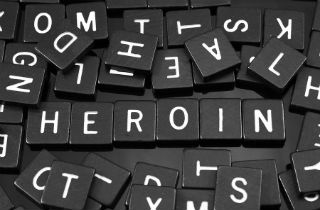Do U.S. teens use heroin?
Yes, they do.
In fact, there is an epidemic happening among teenagers in our country – and that epidemic is heroin addiction. For most parents, this seems hard to believe. Most would dismiss having any concerns, because the thought of their child getting involved with heroin and heroin addictive properties is too far-fetched in their minds. Most parents in their 30’s or older remember alcohol and marijuana being the drugs of choice for teenagers. But times have changed.
Heroin is quickly becoming the new ‘hip’ drug for teens – so don’t make the mistake of believing this can’t happen to your child. In fact, the National Drug Use and Health Survey reports that heroin use is steady and slowly increasing. Read on for ways to identify heroin problems in your teen, and a section at the end for your questions about heroin, heroin withdrawal syndrome, and heroin addiction treatment.
Heroin gateway drugs = prescription pain pills
One of the reasons heroin seems to be trending is the popularity of opioid painkillers such as Oxycontin (oxycodone) and Vicodin (hydrocodone). Prescription pain medication addiction is growing. Very often, teenagers don’t view these drugs as dangerous because they are prescribed. Because these painkillers are highly addictive, and the high is similar to that of heroin, opioid painkillers can serve as a gateway drug to heroin. Further compounding the problem is the fact that heroin is often cheaper to obtain than its prescription counterparts. So once addiction takes hold, heroin is a less expensive option.
One of the most common ways teenagers first get their hands on prescription painkillers is the family medicine cabinet. As a parent, it is important to stay aware of this danger and avoid the possibility of your child obtaining these drugs in your own home. When a doctor or dentist attempts to give a prescription for these drugs, think twice before accepting it. In many cases, painkillers this strong are not needed. If a prescription is taken, be sure to discard any remaining pills once the symptoms subside. Don’t hold onto them for future use. You should also share this information with the parents of your teen’s friends so they are also aware.
How can parents reduce risk of heroin addiction?
Adolescence is often a time of exploration and experimentation. Because heroin is so physically addictive, what may start out as experimenting can quickly turn into a full-blown addiction. This is why education is so important. Our children need to understand the risks, and how addictive and life-threatening heroin and opioid painkillers are. While there are no parenting skills that will guarantee your teenager will never experiment with drugs, parents can reduce the likelihood by following these suggestions:
1. Encourage a trusting relationship with your child from an early age by being supportive and giving encouragement for positive behavior.
2. Set a good example by not smoking, not using drugs yourself, and drinking moderately (or not at all).
3. Start talking to your child at an early age about the dangers of drugs and alcohol. Have open and honest discussions on the topic.
4. Create a healthy lifestyle at home by supplying good foods and encouraging exercise and sports.
5. Be aware of possible warning signs of drug use or addiction, such as:
- a drop in grades and school performance
- having regular symptoms of illness
- negative changes in your teenager’s behavior
- new patterns of secrecy and unexplained periods away from home
- sudden lack of interest in hobbies or extracurricular activities that he or she was once passionate about
- suddenly hanging out with a different crowd or not bringing new friends home to meet you
- unexplained items or money missing from the home
And most importantly, if you suspect that your child is taking drugs – act immediately. Addiction to any type of drug leads to molecular and neurochemical changes in the brain. Continued use of drugs results in further brain damage, especially in before you reach 18. While there is no cut and dry answer for the steps to take, you should intervene as soon as possible. Reach out to your child’s doctor, school counselor, or local services for help. And leave your questions or comments about teenage heroin use here.









Related Posts